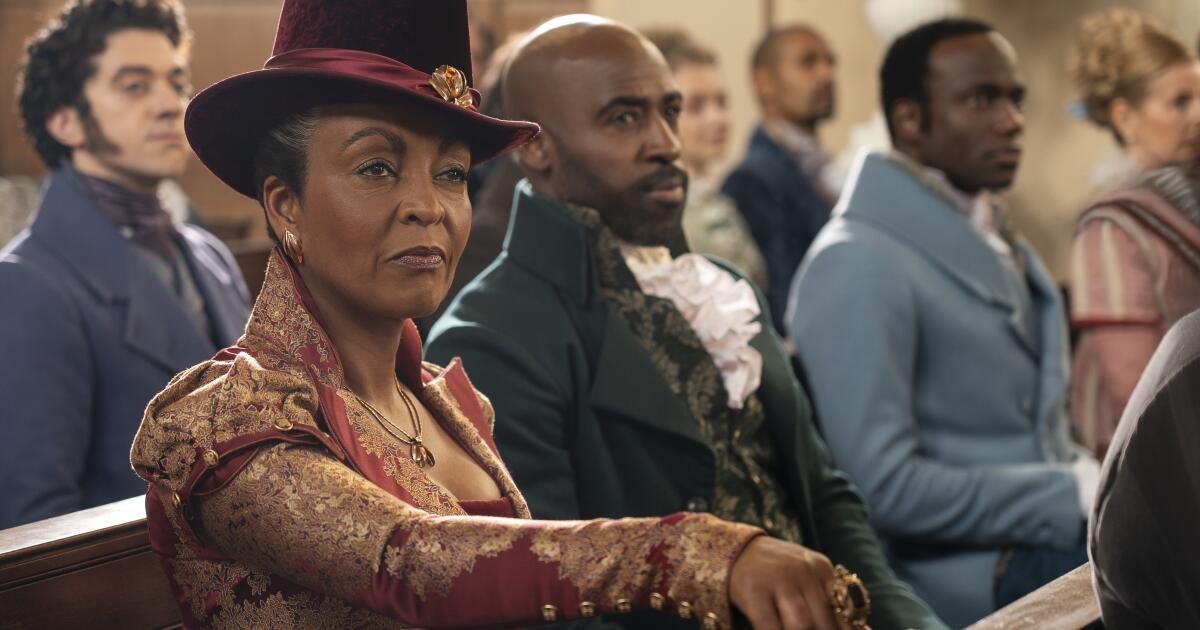Adjoa Andoh, who plays Lady Danbury on Netflix’s Regency-era show “Bridgerton,” says the series still doesn’t light Black skin properly, despite its diverse cast.
“The continuing conversation about lighting Black skin — on every show, nothing’s changed,” she said in a recent podcast.
Andoh, who also had roles in films “Invictus” and “Fractured,” expressed that and other frustrations during the latest episode of “Stirring It Up.” Despite playing one of the sharpest and most influential women on “Bridgerton,” Andoh said, she doesn’t feel empowered in her career.
She said she feels comfortable speaking up now, but noted that the burden Black actors face to ask for what they deserve can be exhausting, especially compared with their white counterparts.
“I suppose I feel powerful in that I will now go: ‘Am I blond?,’” she said. “But I hate doing it because a bit of me is like, ‘Oh I don’t want to do it. I don’t want to make a fuss.’”
“Bridgerton” and its spinoff series, “Queen Charlotte: A Bridgerton Story,” both have casts filled with people of all colors, with Black actors in many major roles: Danbury is a commanding widow despite having been forced into an arranged marriage in her youth; the formidable queen is played by Golda Rosheuvel, who is mixed race; and two Black men, played by Regé-Jean Page and Victor Alli, have married into the Bridgerton family, which is white. In the second season, the eldest Bridgerton son marries a character of Indian descent. Yet Andoh still has to ask to get lighting that complements her complexion — something crucial to how a character is portrayed.
The “Invictus” actor said such details matter because she wants “to come and do my work. I want to stay in character … I just want to come on and be Lady Danbury and do what she’s got to do and be totally engaged with that,” rather than fussing about how she’s lighted.
“When people say we’re chippy or we’re being militant or we’re all that stuff, what I want to say is, ‘I’m just a human being and I just want to do the gift that I’m blessed with. I want to do it in a free way, like I see many other people doing.’”
Andoh also said facing racial bias in the industry can take a mental toll and cause self-doubt.
“It’s a dual-psycho thing that goes on the whole time, isn’t it? Did I get that job because [of my race]? Did I not get that job because [of my race]?,” she said. “I don’t want to think about it. I just want to get the job because I’m great, or not get the job because I’m s—.”
A representative for Andoh did not respond immediately to The Times’ request for further comment.

